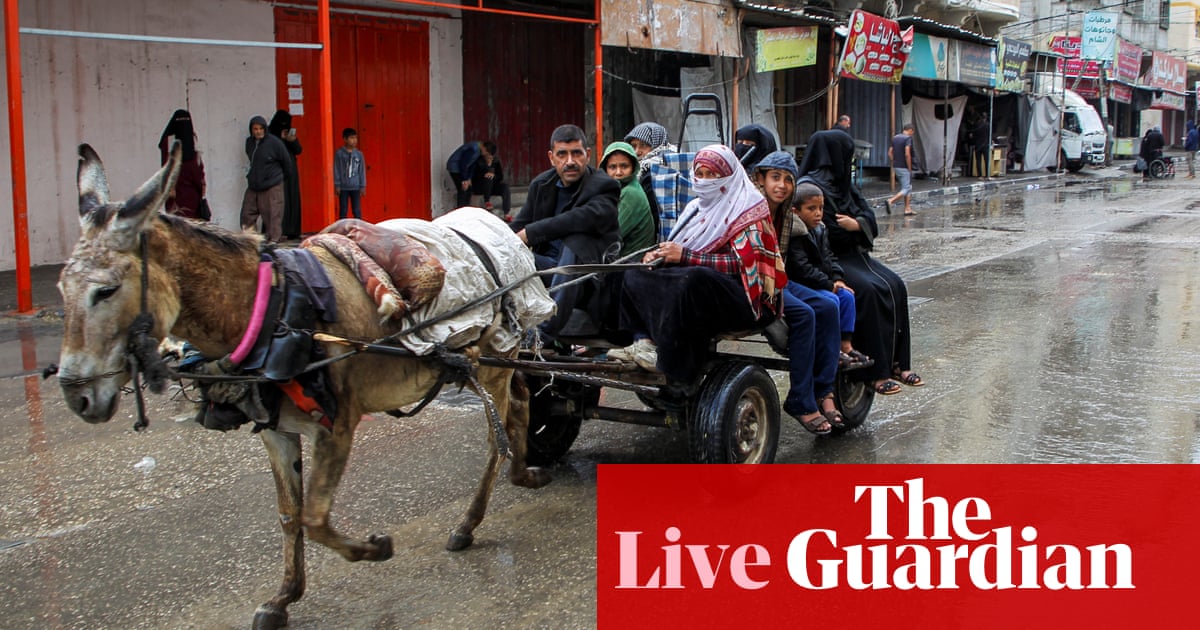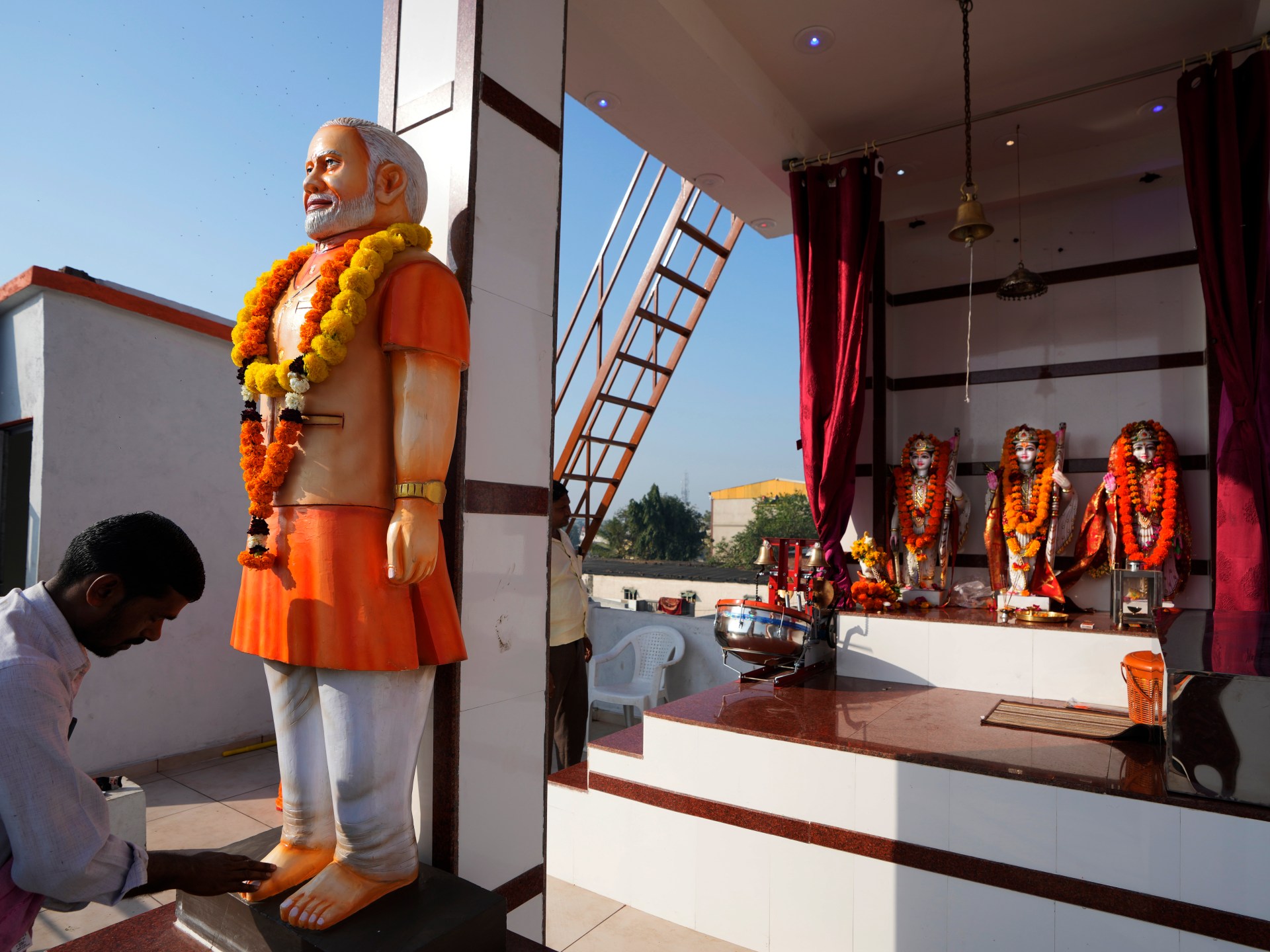Nina Lakhani
There is mounting anger and frustration at the UNFCCC for restricting freedom of expression and assembly of civil society and frontline communities at Cop28 – in violation of the treaty framework and the Paris agreement that all parties signed – while almost 2500 fossil fuel lobbyists walk the corridors.
A major climate action march is planned for this afternoon as part of the global day on climate action, but it is facing a slew of restrictions on what can be said and how many can attend. For example, no mention of Israel is allowed – other wise Cop badges may be revoked.
This is happening on the eve of the 75th anniversary of the declaration of human rights.
Yesterday it was reported by my colleague Damian Carrington that OPEC, the Organization of the Petroleum Exporting Countries, had sent letters to its member countries warning, with “utmost urgency” that “pressure against fossil fuels may reach a tipping point with irreversible consequences” at Cop28. The leaked letters were seen by the Guardian.
The letters noted that a “fossil fuels phase out” remains on the negotiating table at the UN climate summit and urges the oil states to “proactively reject any text or formula that targets energy, ie fossil fuels, rather than emissions”.
The news agencies Bloomberg and Reuters also reported the news on Friday, saying multiple independent sources had confirmed the documents were genuine, and that Opec had declined to comment. The Guardian has not confirmed the authenticity of the documents and Opec did not respond to the Guardian’s request for comment.
Today there has been some reaction to the story, with Cansın Leylim, 350.org Associate Director of Global Campaigns, saying:
“OPEC’s desperate resistance to a fossil fuel phaseout reveals their fear of a changing tide, evident in COP28 discussions. As 106 nations rally for a rapid fossil fuel decline, the draft text of the Global Stocktake offers hope with several options for a phaseout of fossil fuels. OPEC needs to get with the program or move out of the way of our just transition to a 100% renewable energy powered future. COP28 was supposed to be the most inclusive of climate talks, yet fossil fuel lobbyists have found shelter, and are trying to block progress. The spotlight is now on the COP28’s Presidency and if they will broker a deal for a just transition or instead align themselves with the oil industry.”
But, as Catherine Abreu, Founder & Executive Director, Destination Zero, observed, maybe the letters are a good sign?
“You know #COP28 is on the precipice of delivering an historic outcome that will change the game in the global transition away from fossil fuels towards renewable energy and energy efficiency when Opec starts to panic.”
You know #COP28 is on the precipice of delivering an historic outcome that will change the game in the global transition away from fossil fuels towards renewable energy and energy efficiency when Opec starts to panic. https://t.co/xZrgbYoZR3
— Catherine Abreu (@catabreu_) December 9, 2023
Nina Lakhani
The climate crisis could stifle economic growth in the Gulf region by almost 70% by 2100, if fossil fuels are not phased out and greenhouse gas emissions continue to heat the planet at the current rate, a new study by Christian Aid suggests.
The report Mercury Rising: the economic impact of climate change on the Arabian Peninsula found that Gulf countries can expect to suffer an average GDP hit of -69% by the end of the century, if global temperature rise reaches 3C above pre-industrial levels by the end of the century. If the world rallies to phase out fossil fuels and curtails planet heating to 1.5C as set out in the Paris Agreement, these countries face an average GDP growth reduction of -8.2% by 2050 and -36% by 2100.
Cop28 host UAE, Saudi Arabia and Kuwait face a worst case scenario of GDP growth reduction of -72% by 2100. At 1.5 C, the economic hit for these three oil producers would be reduced to less than 40% compared to growth without a climate crisis.

The region is at risk of becoming “uninhabitable”, according to Shady Khalil, Greenpeace campaigner in the Middle East and North Africa (Mena) region. ‘The region is acutely threatened by climate change, and faces a future where rising temperatures could render vast areas uninhabitable, exacerbating the vulnerabilities of countless communities and leading to displacement, wars, and premature deaths.”
Gulf country economies are still expected to be higher than they are today, but the pace of growth will depend on how much the planet warms.
Report author Marina Andrijevic, an economist at the International Institute for Applied Systems Analysis in Vienna, said: “The analysis shows the grave economic harm that will be posed to life in the Arabian Peninsula if temperatures continue to climb in an already baking hot region. Agreeing to phase out of all fossil fuels is the single most significant thing that COP28 could achieve in reducing emissions and turning the tide on climate change.”
The report also shows that Gulf countries have some of the highest per capita emissions on the planet – even without factoring in the fossil fuels extracted and exported in these countries. An average person in UAE is responsible for more CO2 emissions than 645 people from the Democratic Republic of Congo.
Good morning! This is Bibi van der Zee, on the ninth day (if we don’t count Thursday’s rest day) of the 28th Conference of the Parties climate change summit, or Cop28.
The Guardian will be liveblogging the negotiations throughout, as always, and we look forward to your contributions: please email me on bibi.vanderzee@theguardian.com with thoughts and suggestions. Ajit Niranjan (Ajit.niranjan@theguardian.com) will be taking over later on.
Yesterday
-
The former French prime minister and Cop21 president, Laurent Fabius, said we are off track for 1.5 degrees of warming, as agreed in the Paris agreement, and that he thinks we will hit between 2.8 and 3 if we don’t act now.
-
Nina Lakhani revealed Cop28 organisers granted attendance to at least 475 lobbyists working on carbon capture and storage, unproven technologies that climate scientists say will not curtail global heating.
-
Norway’s minister of foreign affairs, Espen Barth Eide, was confronted by activists protesting against the new Rosebank oilfield in the North Sea. The oil and gas licence has been signed off by the UK government – which has been highly controversial – but the facility will be operated by Norway’s Equinor. They asked him if he would stop Rosebank because of the vast emissions it would cause. He said it was not up to him, adding: “These decisions are up to the UK government.”
-
Sultan Al Jaber, Cop28 president, seemed chipper about the progress made at the summit. He told journalists “We can all agree Cop28 has been different, and I am sure we will agree that Cop28 has already made history.”
Stick with us for all the updates.




